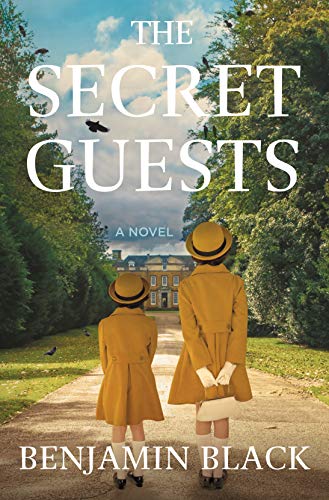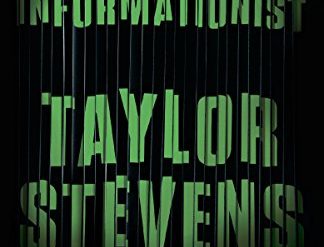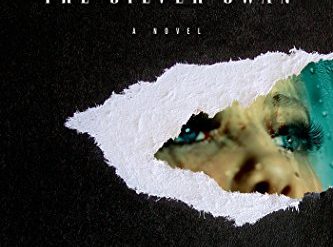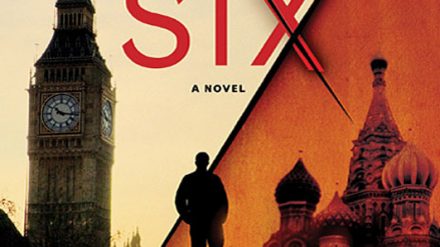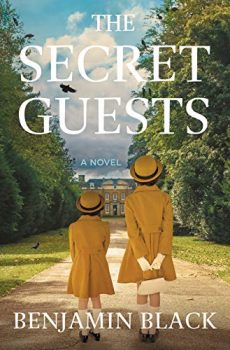
In 1940, 14-year-old Princess Elizabeth and her 10-year-old sister, Margaret, were sent to Windsor Castle in the Berkshire countryside to escape the nightly bombing of London by the Luftwaffe. Their parents, King George VI and Queen Mary, remained behind in Buckingham Palace to boost the public’s morale. But in his clever new novel, The Secret Guests, Booker Award winner Benjamin Black imagines what might have transpired had the girls been dispatched instead to the Irish countryside.
Historical fiction worthy of this Booker Award winner
Traveling as “Ellen” and “Mary,” the two princesses are shepherded to a crumbling old pile in the Irish countryside. There, a distant relative, an aging and dyspeptic Duke, struggles to hold onto the property in the face of rising costs, falling income, and the hostility of his neighbors. To protect Ellen and Mary, MI5 has sent a young woman officer named Celia Nashe; the Irish government has assigned an even younger officer, a man with the unlikely name of St. John Strafford, to keep an eye on the unwelcome visitors. Both characters as well as the princesses, the duke, a British embassy factotum, an Irish cabinet member, various members of the IRA, and the duke’s household staff, all emerge as fully credible human beings. Benjamin Black most assuredly has a way with words.
The Secret Guests by Benjamin Black (2020) 295 pages @@@@@ (5 out of 5)
The historical setting
The story in The Secret Guests is grounded on two historical episodes: the centuries-long struggle of the Irish for independence from Great Britain, and Nazi Germany’s bombing in preparation for invading England.
Irish independence
From the late 12th century, shortly after the Norman invasion of England, until 1949, with the enactment of the Republic of Ireland Act, the Irish people seethed under the control of the English. Following World War I, Ireland was merged with the United Kingdom. The merger helped trigger civil war in Ireland. Resentment over heavy-handed British domination of the island continued, helping move the Irish government of Eamon de Valera to declare neutrality in World War II. With Britain anticipating a German invasion in 1940, tempers ran high in London. At this remove, it’s unthinkable that King George would have subjected his daughters to the not-so-tender mercies of the Irish.
The Blitz
During the Battle of Britain (July-October 1940), Germany’s Luftwaffe brought the brutal reality of total war home to England’s cities. More than 40,000 civilians died in the bombing campaign, nearly half of them in London. The campaign, known to Britons as The Blitz, was Hitler’s preamble to the planned invasion of Britain that September. British leadership and the public alike fully expected to fight Germans “on the beaches, . . . on the landing grounds, . . . in the fields and in the streets,” as Winston Churchill so famously declared. However, operating against staggering odds, the courageous young men of RAF Fighter Command achieved aerial supremacy at enormous cost and made Hitler’s invasion plans moot.
For additional reading
I’ve also reviewed all seven books in The Quirke series of Dublin crime novels from Benjamin Black as well as three other John Banville books published under his pseudonym, Benjamin Black:
- The Black-Eyed Blonde, resurrecting Raymond Chandler’s iconic sleuth, Philip Marlowe (Benjamin Black brings back Philip Marlowe);
- Wolf on a String (A murder mystery set in the Holy Roman Empire); and
- The Lemur, set in contemporary New York City and Dublin (A murder mystery from a master stylist).
You might also enjoy my posts:
- Top 10 mystery and thriller series;
- 20 excellent standalone mysteries and thrillers;
- The 10 best novels about World War II (with 20+ runners-up); and
- Two dozen outstanding detective series from around the world.
For an abundance of great mystery stories, go to Top 20 suspenseful detective novels (plus 200 more). And if you’re looking for exciting historical novels, check out Top 10 historical mysteries and thrillers reviewed here (plus 100 others).
And you can always find my most popular reviews, and the most recent ones, plus a guide to this whole site, on the Home Page.

